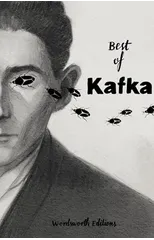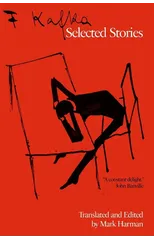In "The Castle," Franz Kafka tells the story of K., a land surveyor who arrives in a remote village, eager to connect with the enigmatic castle that dominates the landscape. However, he soon finds himself entangled in a web of bureaucratic absurdity, facing confusion and isolation as he navigates the villagers' strange relationship with the castle's elusive authority. Through K.'s struggles, Kafka delves into themes of alienation, the quest for meaning, and the frustrating search for acceptance in a world ruled by arbitrary rules. With its rich symbolism and existential depth, "The Castle" invites readers to reflect on their own encounters with authority and the longing for belonging in a seemingly indifferent universe.
Franz Kafka
Franz Kafka was a Czech-born writer known for his surreal and existential works that explored themes of alienation, bureaucracy, and the human experience. His most notable works include "The Metamorphosis," "The Trial," and "The Castle." Kafka's writing style is characterized by its minimalist and precise language, as well as its dark and absurdist themes. His works have had a significant impact on the literary genre of existentialism and have been widely studied and interpreted by scholars and readers alike. "The Metamorphosis," in which a man wakes up to find himself transformed into a giant insect, is considered Kafka's most famous work and a classic of 20th-century literature. Kafka's unique perspective and exploration of the complexities of the human condition continue to resonate with readers around the world.






